Join NIA virtually for the 32nd Annual Nathan W. Shock Award Lecture on November 10, 2022. View the agenda and get the log in details.


A video about neural networks, how they work, and why they’re useful.
My twitter: https://twitter.com/max_romana.
SOURCES
Neural network playground: https://playground.tensorflow.org/
Universal Function Approximation:
Proof: https://cognitivemedium.com/magic_paper/assets/Hornik.pdf.
Covering ReLUs: https://proceedings.neurips.cc/paper/2017/hash/32cbf687880eb…tract.html.
Covering discontinuous functions: https://arxiv.org/pdf/2012.03016.pdf.
Turing Completeness:
Networks of infinite size are turing complete: Neural Computability I & II (behind a paywall unfourtunately, but is cited in following paper)
RNNs are turing complete: https://binds.cs.umass.edu/papers/1992_Siegelmann_COLT.pdf.
Transformers are turing complete: https://arxiv.org/abs/2103.
More on backpropagation:
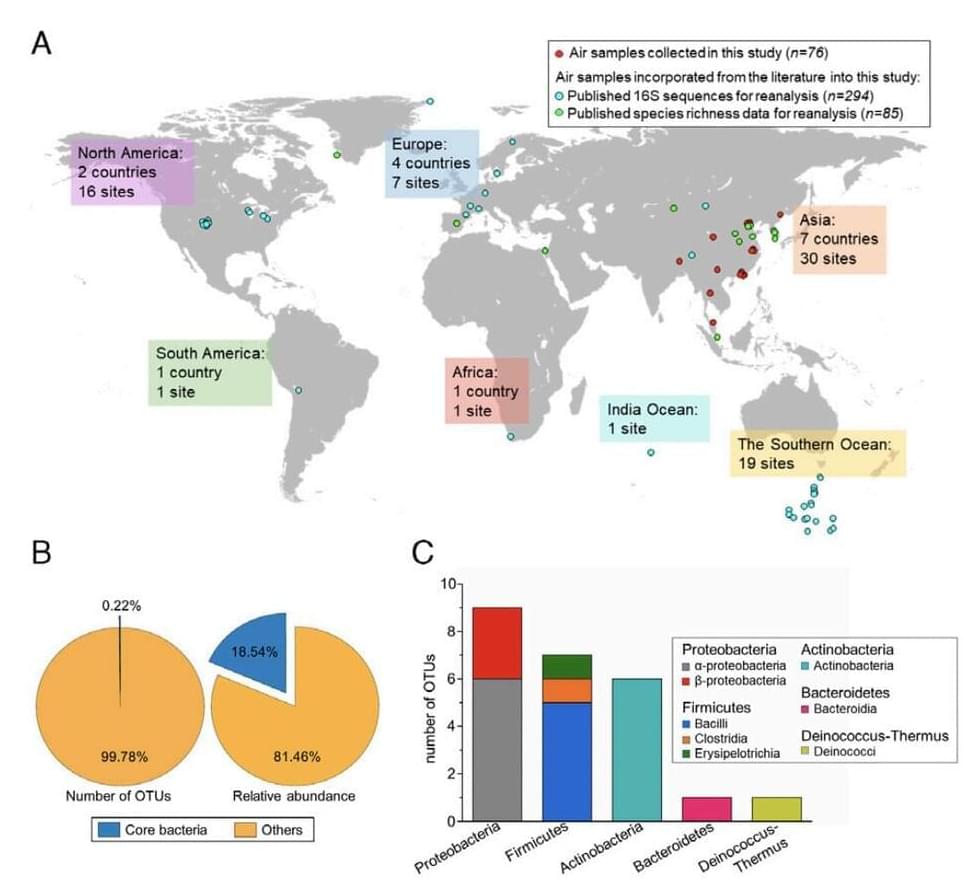
Microbiomes, microorganisms that populate specific environments, are known to include both beneficial and harmful bacterial species. Understanding how destructive microbiomes originate in changing environments and their effects on both the environment and human health could help to tackle global well-being challenges more effectively.
Researchers at the Hong Kong Polytechnic University and institutions and universities in China and the U.S. have recently carried out a study investigating the compositions and origins of airborne (i.e., transported in the air) microbiomes on Earth. Their findings, published in the Proceedings of the National Academy of Sciences, shows that humans and animals are among the primary sources of global airborne bacteria.
“We spent a total of about nine years on this global study, including drafting the initial proposal, conducting sampling across the world, collecting and processing data, and drafting and revising the manuscript,” Xiangdong Li, one of the leading researchers who carried out the study, told Phys.org. “We established a comprehensive atlas of global airborne bacteria with implications for microbiology, ecology, air pollution, and public health, and we believe that airborne bacteria will attract more and more attention from all sectors of society.”
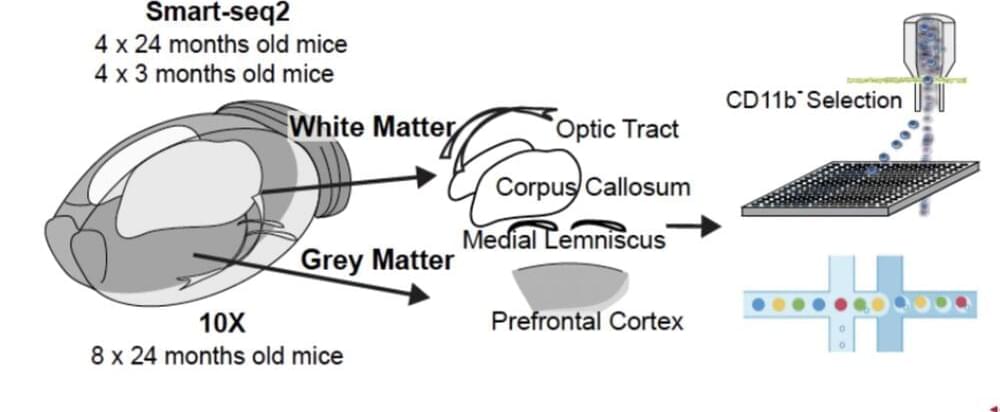
Past neuroscience studies have consistently demonstrated that the aging of the mammalian nervous system is liked with a decline in the volume and functioning of white matter, nerve fibers found in deep brain tissues. Although this is now a well-established finding, the mechanisms underpinning the decline of white matter and associated pathologies are poorly understood.
Researchers at Ludwig Maximilian University (LMU) of Munich, Technical University of Munich, the German Center for Neurodegenerative Diseases, Munich Cluster of Systems Neurology and University Hospital Würzburg have recently carried out a study aimed at better understanding the neural mechanisms that might result in the deterioration of white matter. Their findings, published in Nature Neuroscience, suggest that adaptive immune responses could promote the loss of cells in aging white matter.
“Among the hallmarks of brain aging is a decline in white matter volume and function which leads to an increase in neurological disorders,” Mikael Simons and Özgün Gökce, two of the researchers who carried out the study, told Medical Xpress. “White matter contains nerve fibers (axons), which are extensions of nerve cells (neurons). Many of these nerve fibers are surrounded by a type of sheath or covering called myelin, which allows our neurons to communicate fast, and gives white matter its color.”
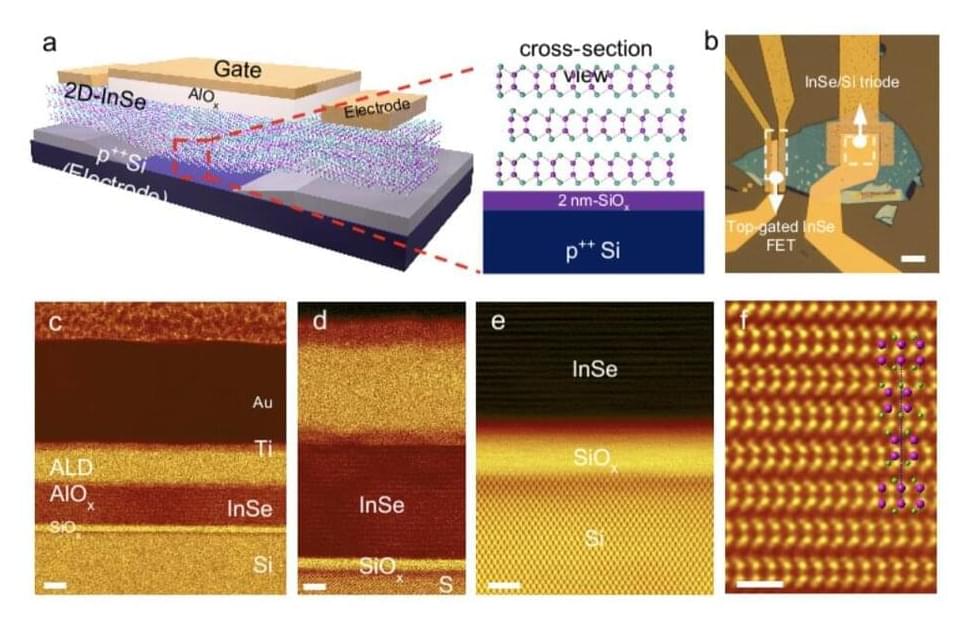
Electronics engineers worldwide are trying to improve the performance of devices, while also lowering their power consumption. Tunnel field-effect transistors (TFETs), an experimental class of transistors with a unique switching mechanism, could be a particularly promising solution for developing low-power electronics.
Despite their potential, most TFETs based on silicon and III-V heterojunctions exhibit low on-current densities and on/off current ratios in some modes of operation. Fabricating these transistors using 2D materials could help to improve electrostatic control, potentially increasing their on-current densities and on/off ratios.
Researchers at University of Pennsylvania, the Chinese Academy of Sciences, the National Institute of Standards and Technology, and the Air Force Research Laboratory have recently developed new heterojunction tunnel triodes based on van der Waals heterostructures formed from 2D metal selenide and 3D silicon. These triodes, presented in a paper published in Nature Electronics, could outperform other TFETs presented in the past in terms of on-current densities and on/off ratios.
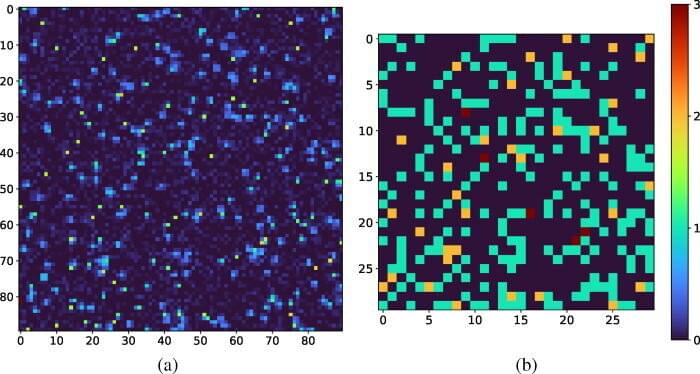
X-rays can be used like a superfast, atomic-resolution camera, and if researchers shoot a pair of X-ray pulses just moments apart, they get atomic-resolution snapshots of a system at two points in time. Comparing these snapshots shows how a material fluctuates within a tiny fraction of a second, which could help scientists design future generations of super-fast computers, communications, and other technologies.
Resolving the information in these X-ray snapshots, however, is difficult and time intensive, so Joshua Turner, a lead scientist at the Department of Energy’s SLAC National Accelerator Center and Stanford University, and ten other researchers turned to artificial intelligence to automate the process. Their machine learning-aided method, published October 17 in Structural Dynamics, accelerates this X-ray probing technique, and extends it to previously inaccessible materials.
“The most exciting thing to me is that we can now access a different range of measurements, which we couldn’t before,” Turner said.
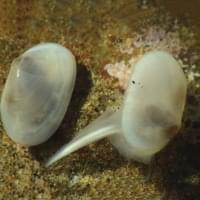
A small bivalve mollusk previously only known from the Pleistocene of Los Angeles County has recently been found living intertidally near Santa Barbara, California. The bivalve has been determined to be Cymatioa cooki (Willett, 1937), a member of the Galeommatoidea J.E. Gray, 1840. We document the habitat for the newly discovered C. cooki, and compare it to C. electilis (Berry, 1963), the other extant member of this genus recorded from the region. Cymatioa cooki is rare, and while many galeommatoid species have been shown to be commensal with other invertebrates, we have been unable to determine any specific commensal relationships for it.

At first glance, the human body seems to be symmetrical: two arms, two legs, two eyes, two ears, and even the nose and mouth appear to be mirrored on an imaginary axis that divides most people’s faces. Finally, the brain is split into two nearly equal-sized halves, and the furrows and bulges follow a similar pattern. The initial impression, however, is misleading since there are small, functionally relevant differences between the left and right sides of the different brain regions.
The two hemispheres have distinct functional specializations. For instance, most individuals process language mostly in their left hemisphere whereas spatial attention is primarily processed in their right hemisphere. Work can thus be distributed more effectively to both sides, and the overall range of tasks is expanded.
However, this so-called lateralization, or the tendency for brain regions to process certain functions more in the left or right hemisphere, differs between people. And not only in the minority whose brains are mirror-inverted in comparison to the majority. Even people with classically arranged brains have varying degrees of asymmetry. Previous research has indicated that this, in turn, may have an effect on the functions themselves.

European moles shrink their brains by 11% before the winter and grow them again by 4% by the summer.
European moles face an existential crisis in the depths of winter. Their high-limit mammal metabolisms need more food than is available during the coldest months. Instead of migrating or hibernating to deal with the seasonal challenge, moles have devised an unexpected energy-saving strategy: shrinking their brains.
In a recent study, a group from the Max Planck Institute of Animal Behavior headed by Dina Dechmann found that European moles shrink their brains by 11% before the winter and grow them back by 4% by summer. They are a new group of mammals known for reversibly shrinking their brains through a process known as Dehnel’s phenomenon.
